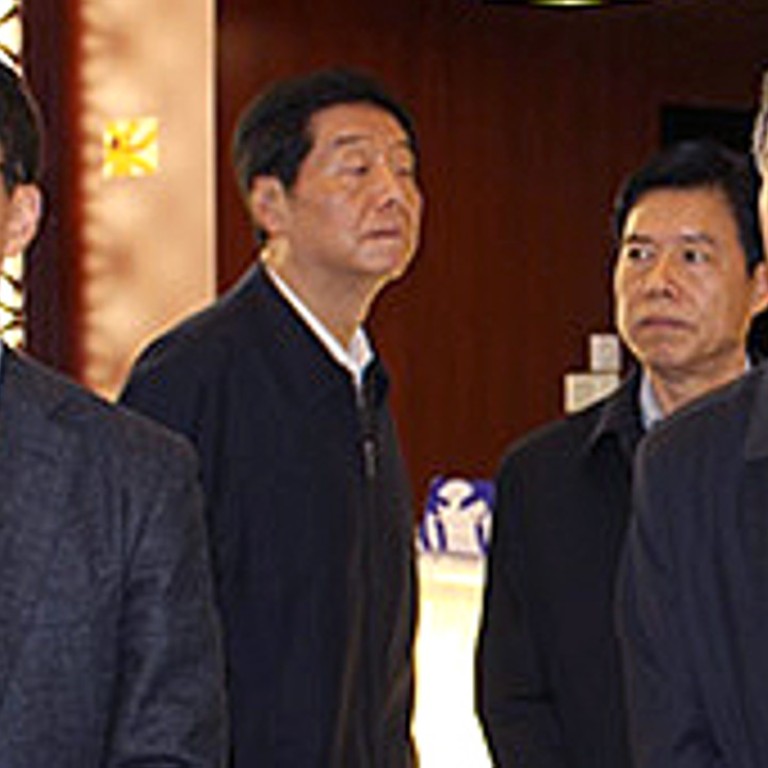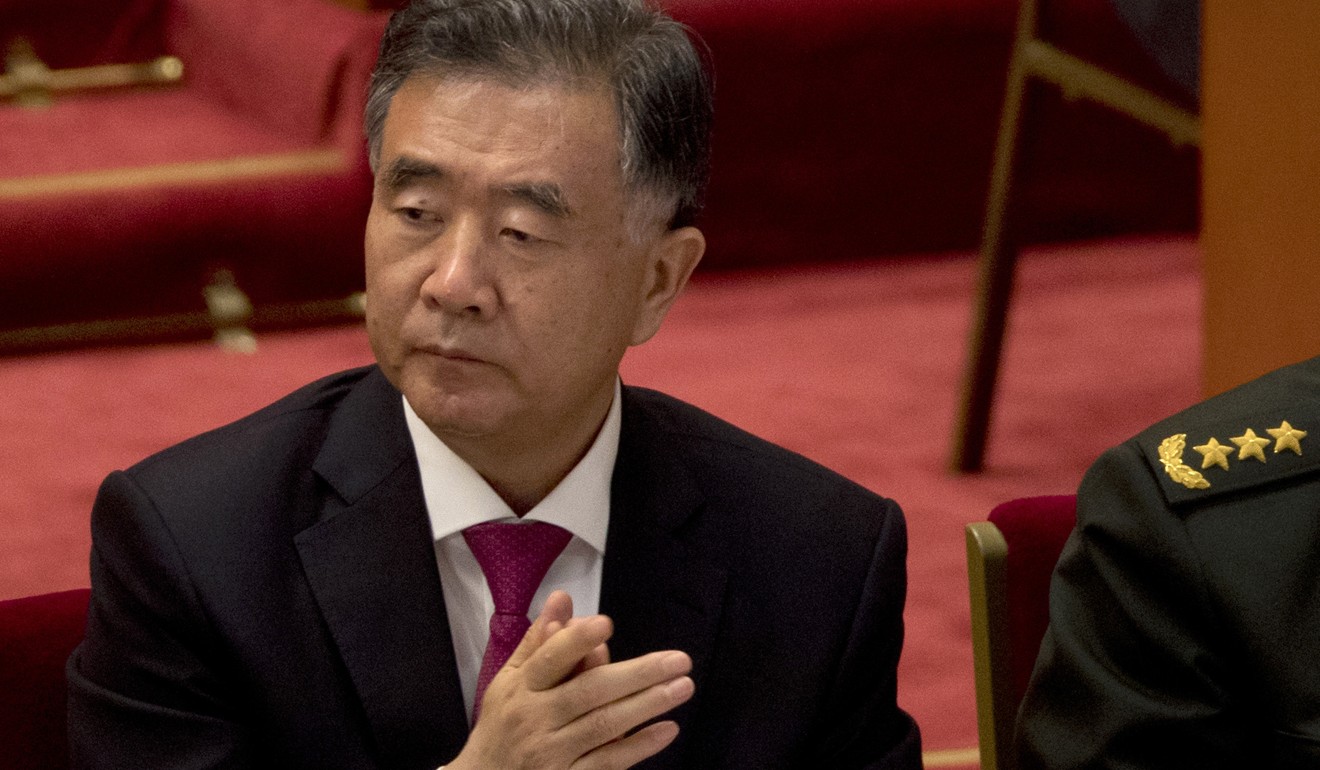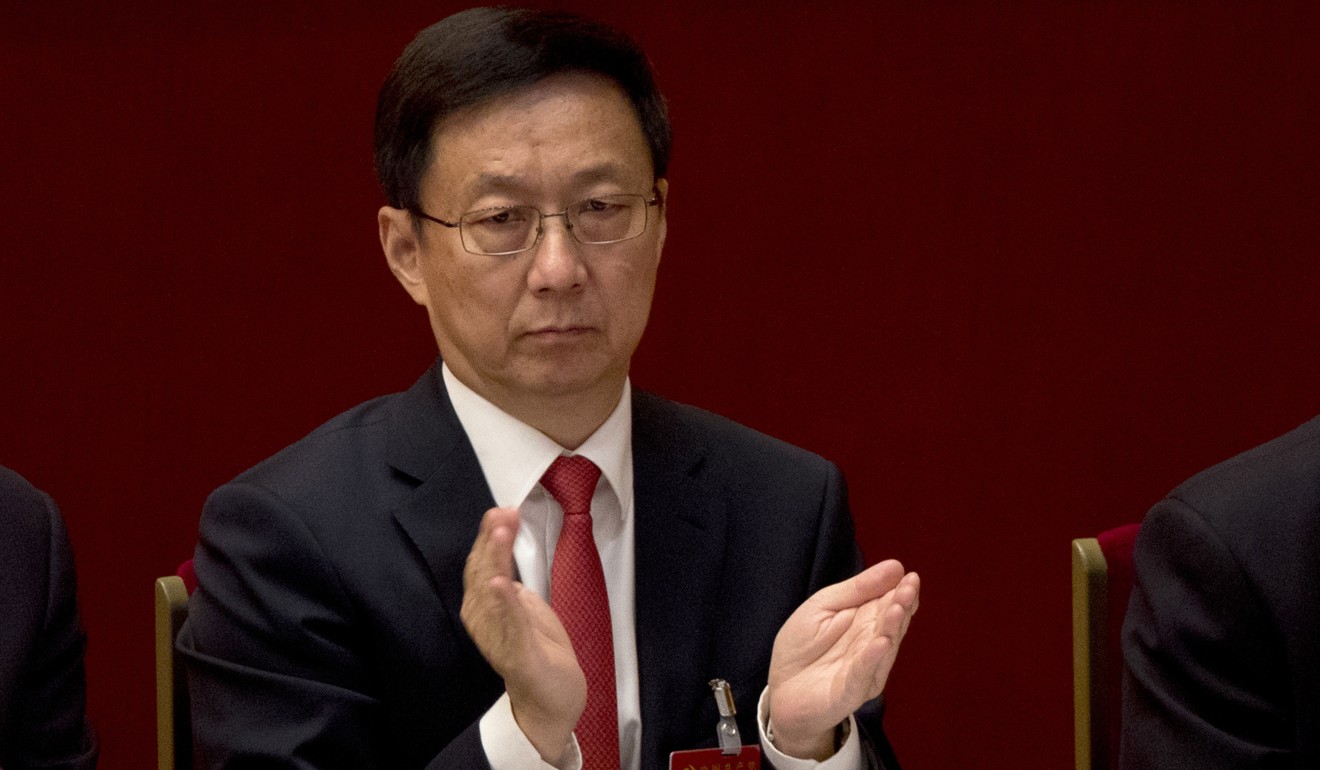
Exclusive | China’s new leadership line-up revealed in full for first time with seasoned duo tipped to take key jobs
Veteran Wang Yang is expected to go up a rung to executive vice-premier, while Shanghai chief Han Zheng will head political advisory body, sources say
Veteran politician Wang Yang is most likely to become China’s executive vice-premier while Shanghai party chief Han Zheng may head its top political advisory body, sources have told the South China Morning Post. Both are tipped to ascend to the ruling Communist Party’s supreme Politburo Standing Committee.
The changes will be made during the party’s twice-a-decade national congress, which is under way in Beijing. Five out of the seven Standing Committee members are due to retire when the congress closes on Tuesday, with only President Xi Jinping and Premier Li Keqiang staying on.
Based on information from several sources, the Post has reported that the five new faces to join China’s top decision-making body will be Li Zhanshu, Han Zheng, Zhao Leji, Wang Yang and Wang Huning. Together with Li Keqiang, they will form a new team to support the Standing Committee’s “core” member, Xi, who is set to emerge as the most powerful leader in decades.
There had been speculation that Xi could reduce the size of the Standing Committee to five, to further centralise power, but sources said that was now unlikely to happen.
The full list of the seven-member Standing Committee will be revealed on Wednesday, after the party’s new Central Committee holds its first plenum meeting and endorses the line-up – completing the leadership reshuffle.

While Wang Yang and Han would be confirmed as Standing Committee members on Wednesday, according to sources, they would not take up the state-level posts until early next year.
Those appointments – Wang as executive vice-premier and Han as head of the Chinese People’s Political Consultative Conference (CPPCC) – are expected to be finalised at the party’s second plenum meeting, just ahead of the annual National People’s Congress in March, at which they will formally approved.
The promotions show that Xi wants to maintain political continuity and stability, according to one source. They also show that political norms such as respect for seniority and the balance of power among factions still matter.
But the decision to elevate Wang and Han, both already members of the 25-strong Politburo, comes as no surprise – they are seasoned politicians and well-connected at the top.
Han, the party secretary of Shanghai, is often linked to former president Jiang Zemin. Traditionally, the party boss of Shanghai – the country’s economic centre – has always taken a seat at the supreme decision-making body during a leadership reshuffle. The only exception to the rule is disgraced former Shanghai boss Chen Liangyu.
Han is expected to follow in the footsteps of his predecessor Yu Zhengsheng, the current chairman of the CPPCC who is due to retire.

Wang, who is already a vice-premier, is also a predictable choice – having managed both Chongqing and Guangdong, he has extensive administrative experience. But some are still sceptical about whether he will be elevated, given his background with the Communist Youth League – the once influential faction that has drawn severe criticism from Xi for its loose discipline.
Matthias Stepan, an expert on Chinese policymaking at the Berlin-based think tank Mercator Institute for China Studies (MERICS), said Wang had the credentials to be executive vice-premier.
“He definitely has a good track record, no one doubts that. And I think that he has the right set of skills and knowledge, especially when we consider the upgrade of the Chinese economy,” Stepan said.
“He’s has a good sense for what it takes to reform the Chinese economy – the industrial upgrade needs to be innovation-driven, that technology plays a key role. [This contributes to] the rise of China as a manufacturing superpower.”
But Stepan had reservations about whether Wang would get the job. “The pool of qualified candidates is large, there might be others who are more trusted by Xi Jinping,” he said.
A source familiar with internal party discussions said Wang’s connection with the youth league would not necessarily go against him. The fact Xi had decided to keep Li Keqiang, who is also from the youth league, as premier and the No 2 in the party hierarchy, the source said, showed that the factions may not be as important as observers believe.
“Xi values party consensus and the capability of a candidate,” the source said.
Wang has a solid track record managing megacity Chongqing and southern Guangdong province. A media source in Guangdong described him as a reformist, saying he had given private companies more freedom and encouraged innovation and sustainable growth. Wang was more “proactive and open” than his successor Hu Chunhua, according to the media source.
As a vice-premier, Wang is in charge of agriculture and foreign trade. He leads exchanges with the US on trade and economic affairs, and has shown political loyalty to Xi by overseeing the poverty-alleviation campaign, a top priority for the president.

